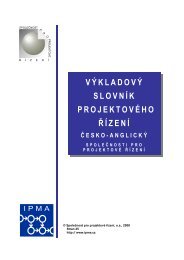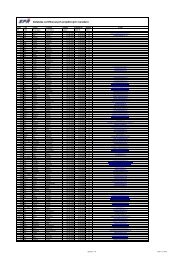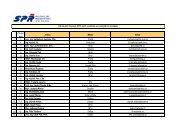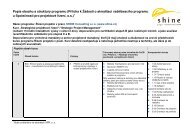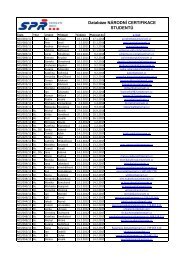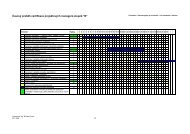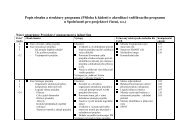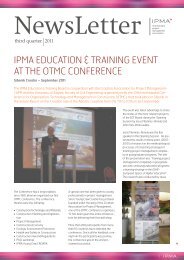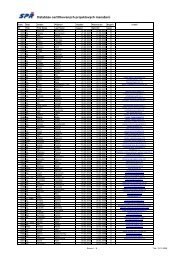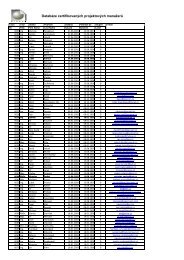IPMA Certification Yearbook 2005
IPMA Certification Yearbook 2005
IPMA Certification Yearbook 2005
You also want an ePaper? Increase the reach of your titles
YUMPU automatically turns print PDFs into web optimized ePapers that Google loves.
International Project Management Association <strong>IPMA</strong> <strong>Certification</strong> <strong>Yearbook</strong> <strong>2005</strong><br />
13<br />
3.7 Standards<br />
• <strong>IPMA</strong> Competence Baseline (ICB), Version 3.0, March 2006,<br />
International Project Management Association,<br />
will supersede <strong>IPMA</strong> Competence Baseline (ICB), Version 2.0b, Bremen, 1999/2001.<br />
• ISO Standard EN ISO/IEC 17'024:2003<br />
General requirements for bodies operating certification of persons<br />
(superseded EN 45013:1989).<br />
3.8 <strong>IPMA</strong> Competence Baseline (ICB)<br />
To be professional, the discipline of Project Management has to have rigorous standards and guidelines<br />
to define the work of the project management personnel. These requirements are defined by<br />
collecting, processing and institutionalising the accepted and applied competence in project management.<br />
In the <strong>IPMA</strong> Competence Baseline (ICB), the knowledge and experience expected from the<br />
project managers and their staff (project management personnel) are presented by a PM competence<br />
element descriptions and a taxonomy.<br />
The ICB contains basic terms, tasks, practices, skills, functions, management processes, methods,<br />
techniques and tools that are commonly used in project management, as well as advanced knowledge,<br />
where appropriate, of innovative and advanced practices used in more limited situations. The<br />
ICB is not a textbook and not a cookbook. It offers an access to the knowledge and experience in<br />
project management. It is the basis for all certification programmes of the national associations and<br />
their certification bodies that are validated by the International Association of Project Management<br />
(<strong>IPMA</strong>).<br />
In 1985 the Project Management Institute (PMI) in North America elaborated a „Body of Knowledge<br />
(BOK)“ for Project Management. This document and later versions until the actual „Guide to the Project<br />
Management Body of Knowledge“ have been the basis for the knowledge test for the Project<br />
Management Professional (PMP).<br />
<strong>IPMA</strong> (at that time called INTERNET) made an inquiry with their members about the need for certification<br />
in 1987. The majority of the answers were positive. The leading professional project management<br />
associations were then establishing their baselines for the assessment of project management<br />
competence during the next ten years. The Association of Project Managers (APM) in the United<br />
Kingdom published the first version of its „BOK“ in 1991. In other European countries, similar projects<br />
and development work were done in the first half of the nineties, sometimes in connection with training<br />
material. A general distinction has been made between the processes, the scheme and the system<br />
(responsibilities and procedures) for the certification.<br />
From 1993 the <strong>IPMA</strong> <strong>Certification</strong> Core Team (CCT) was charged with the coordination and harmonisation<br />
of the national projects and achievements. A first agreement was elaborated to establish<br />
an international framework for developing the national documents for the certification. In this process<br />
the sunflower was used as an instrument for the harmonisation and finally as the logo for the ICB<br />
Version 2.0. The emphasis was not on the ranges of project management competence but on the<br />
competence elements of project management knowledge and experience.<br />
In 1997 the <strong>IPMA</strong> <strong>Certification</strong> Validation Management Board (CVMB) took over the further developments<br />
and the co-ordination of the member associations’ qualification and certification processes,<br />
schemes and systems. In 1998 the <strong>IPMA</strong> Council accepted the standard agreement between a mem-<br />
© <strong>2005</strong> International Project Management Association Version 1.00 / 31.03.2006



